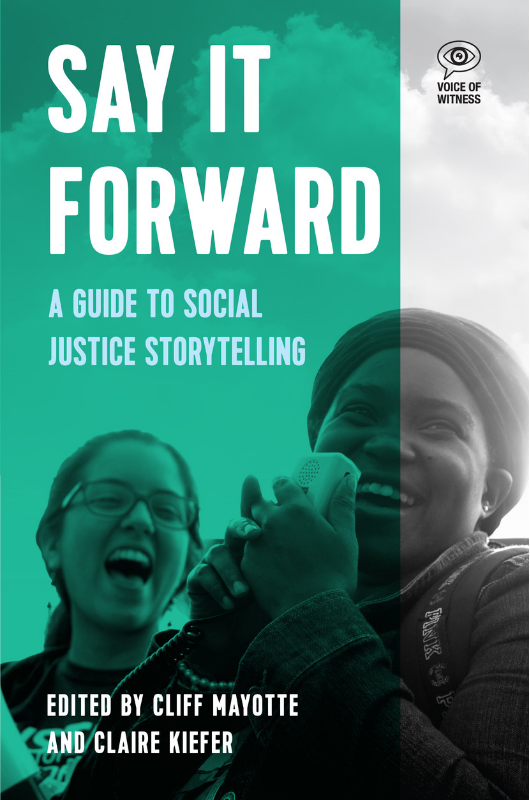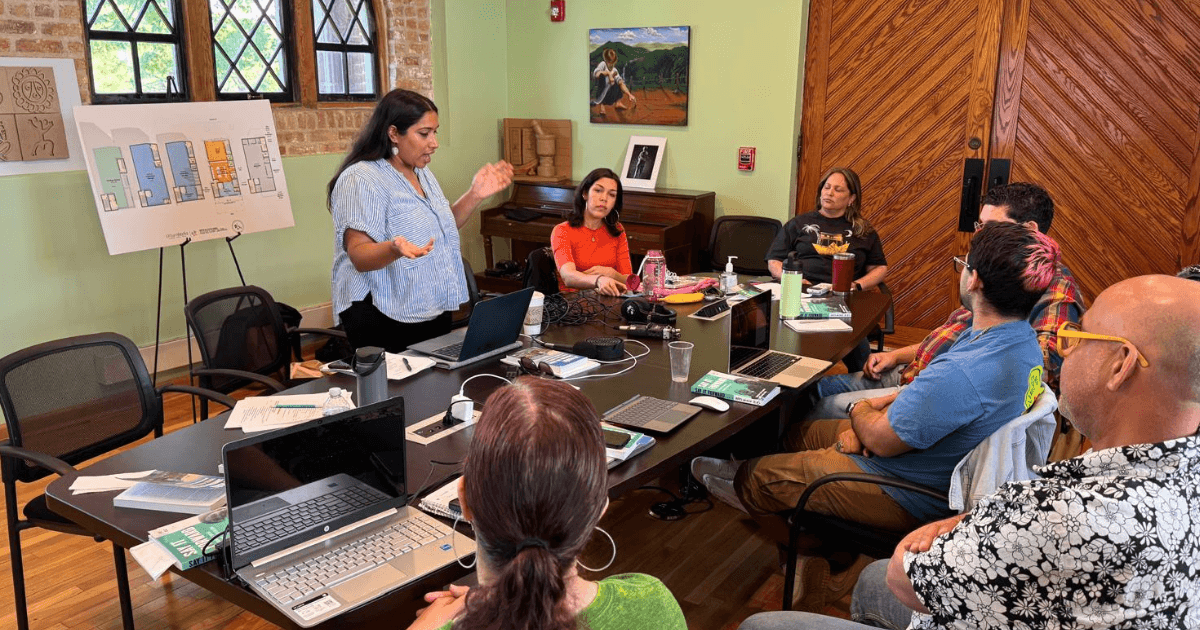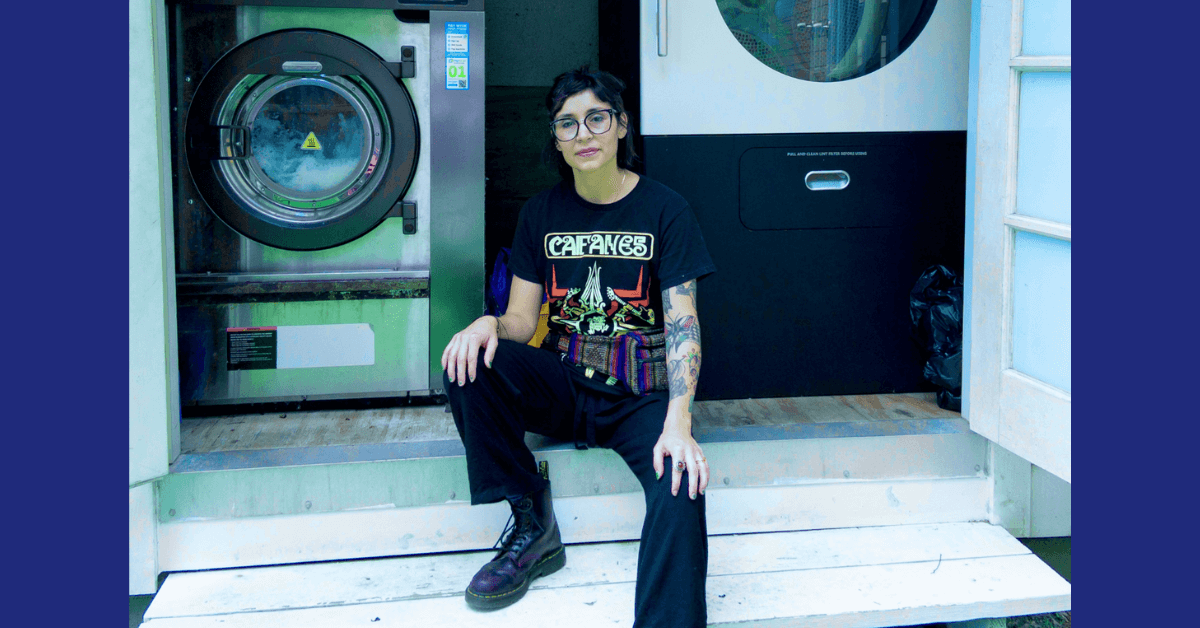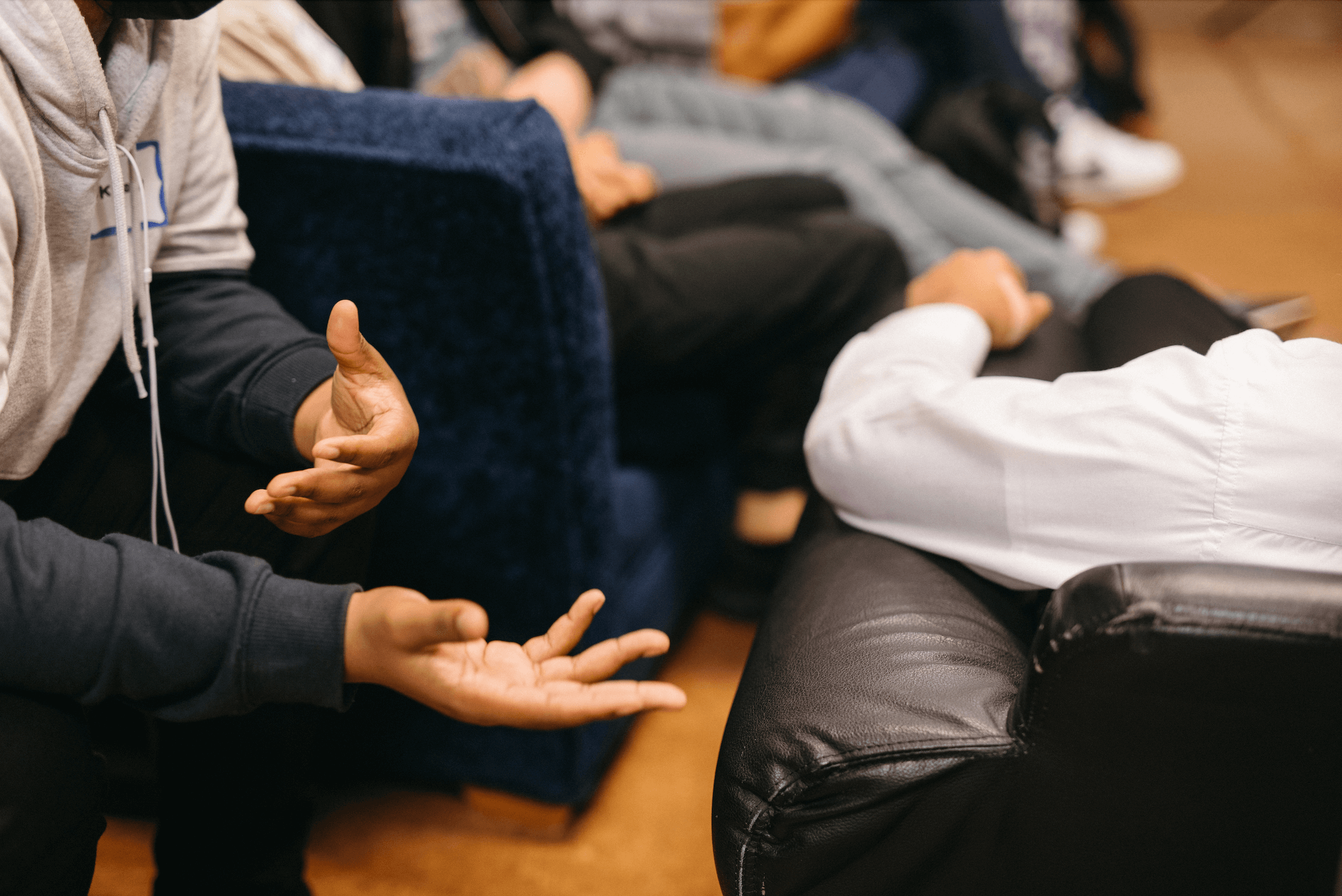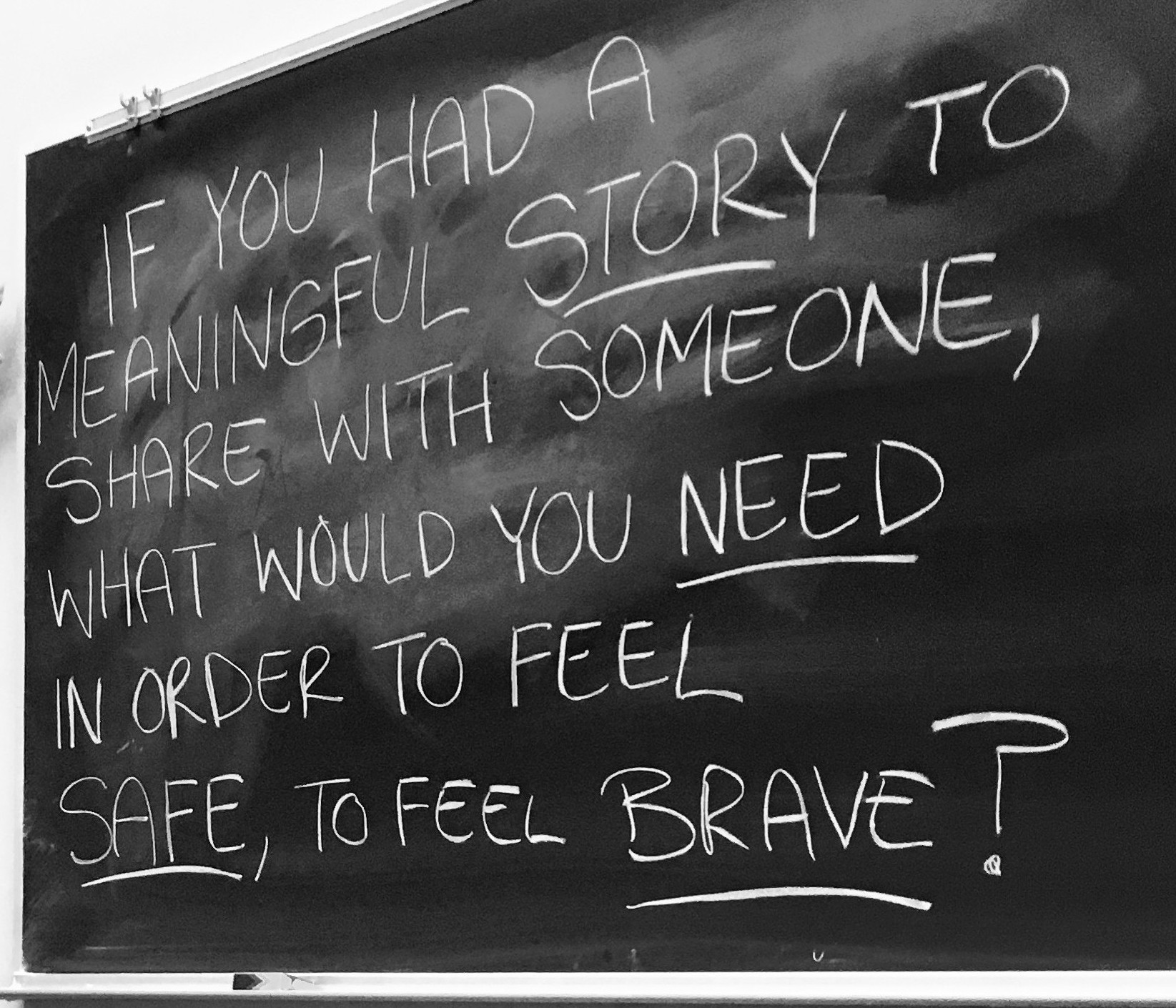 2019 marks an exciting milestone for Voice of Witness, as we celebrate our ten-year anniversary as a nonprofit, and of our education program. We’re proud to have grown our education program into a mighty team of oral history champions, who have taught our ethics-driven methodology widely and helped bring new storytelling projects to life in schools and organizations across the country.
2019 marks an exciting milestone for Voice of Witness, as we celebrate our ten-year anniversary as a nonprofit, and of our education program. We’re proud to have grown our education program into a mighty team of oral history champions, who have taught our ethics-driven methodology widely and helped bring new storytelling projects to life in schools and organizations across the country.
Now, with the launch of our new book Say It Forward: A Guide to Social Justice Storytelling, we hope to make oral history even more accessible to activists, organizations, educators, and communities looking to create their own justice-driven storytelling projects.
But before you dive in, we want to help answer some essential questions about why we are so committed to oral history as a form of social justice.
Often, history is taught through a narrow range of sources, including history books and the media. But many of these sources are incomplete, presenting a top-down approach to history told through a single lens. It’s easy to forget in the grand gestures of historical reporting that history happens to actual people—people with names, families, and individual perspectives. Do our stories need to appear in a textbook or newspaper for us to think of them of as historical?
Oral history, in contrast, begins with the transformative act of asking a question, putting those who have lived our history directly in the driver’s seat of the narrative. Oral history can be a powerful reminder that the number of stories that need to be heard is infinite—contrary to the messages we receive from the stingy gatekeepers of history.
The very substance of oral history clearly demonstrates that all of us are participants in history. Why? Because we share, interpret, interrogate, and draw conclusions about our individual and collective experience every day. What is that if not history?
Oral history is merely a formal term that describes the process of listening to and sharing stories. It’s an accessible way for human beings to exchange social, cultural, and historical knowledge with each other.
By its very nature, oral history can be thoroughly subversive, because it makes space for stories that might not otherwise be heard. It creates a platform for individuals and communities that don’t feel connected to more dominant, established narratives to speak up and share their own personal experiences. The oral history process can empower people to count themselves as a part of history, and not separate from it, especially individuals and communities that have been marginalized or silenced.
As we’ve become more critical of news media and the narrowness of perspectives, reinforcing stereotypes, we’re glad to see that oral history has seen a resurgence.
So now, we invite you to join in the oral history process. Our new book, Say It Forward: A Guide to Social Justice Storytelling, is a DIY guide for harnessing the power of personal narrative to expose larger issues of inequality. The book features field reports, strategies, and an extensive resource section for creating your own storytelling projects.
Take the time to talk to your grandparents about their childhood and life today. Or, start a storytelling project in your community, documenting its history and how it’s changed over the years.
As you embark on your social justice storytelling journey, keep us in the loop – your story just might appear on our blog!

